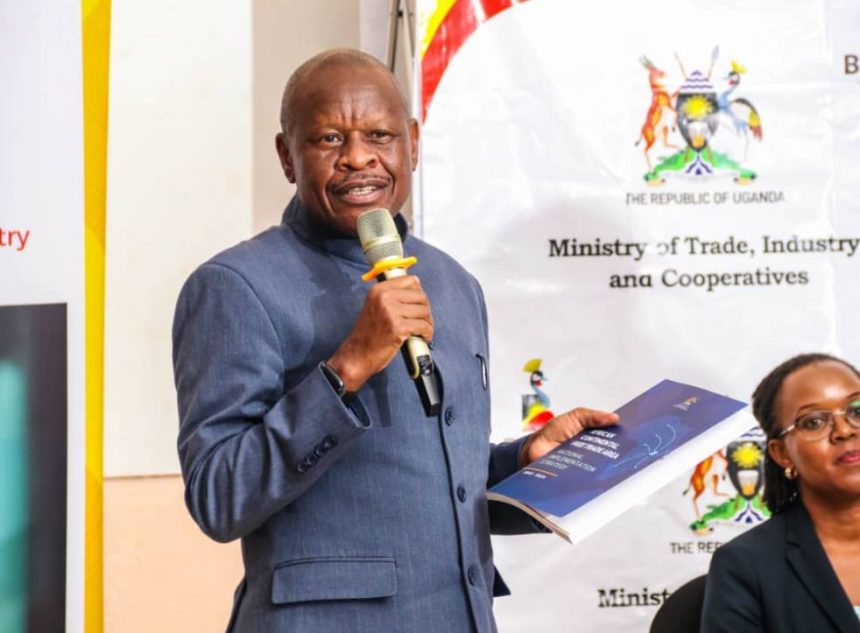Published on 22/10/2025
Ministry of Trade, Industry and Cooperatives has unveiled stringent regulations to streamline Uganda’s sugar industry, barring the establishment of sugar mills in close proximity to one another and setting new conditions for registering sugarcane out-growers.
The new measures are contained in the Sugar Regulations, 2025, tabled before Parliament on October 20, 2025, by Wilson Mbadi, Minister of State for Trade. The regulations seek to operationalize the Sugar Act, 2020, whose implementation has long been delayed by disagreements between government and sector players.

Under the new framework, no person may establish or operate a sugar mill, jaggery mill, or plant to process sugar by-products without a valid licence issued by the Minister of Trade. Licences will not be granted where: a proposed mill is located near an existing one and the surrounding land cannot sustainably supply both; natural resources such as water are insufficient to support more than one plant; the mill poses environmental, social, or economic risks; or the applicant fails to demonstrate how they will develop new cane sources without affecting existing growers.


Before rejecting a licence, the Minister must confirm that existing mills are operating efficiently and can process all the available sugarcane in the area. Licensees are also required to commence operations within three years, or risk having their licences revoked.
For the first time, the government will register all sugarcane out-growers under the supervision of the Sugar Council. Only those with at least one hectare of land and the ability to transport cane to a designated factory will qualify for registration.
However, the regulations provide for provisional registration for growers with less than one hectare, allowing them up to three years to meet the minimum land requirement. The Council will also verify that mills have adequate processing capacity and that the land is suitable for sustainable sugarcane cultivation.
Registered out-growers will be obliged to sell all their cane to designated mills, maintain the acreage listed in their registration certificates, and notify both the Council and millers 12 months in advance of any intended changes in acreage.
Anyone growing or supplying sugarcane without registration, or selling to unlicensed buyers, commits an offence punishable by a fine of up to two currency points (UGX 40,000) or six months’ imprisonment, or both.
The Ministry has also tightened controls on sugar packaging. No one may repackage sugar or its by-products into different quantities, materials, or brands without the Council’s approval. All imported sugar, whether in original or repackaged form, must bear clear labels showing the manufacturer’s name, country of origin, and the contact details of the vendor and purchaser.
The new regulations mark a major government effort to restore order, efficiency, and traceability in Uganda’s sugar sector, which has long faced challenges of mill congestion, unregulated out-growers, and unfair trade practices.








